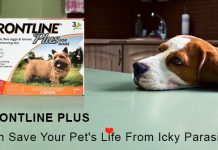Welcoming a puppy into your home is an exciting and heartwarming experience, filled with wagging tails and boundless energy. As a new pet owner, you naturally want to provide the best care possible for your furry friend. Ensuring your puppy’s health and well-being is crucial in these early stages, setting the foundation for a long, happy life together. This guide will walk you through the essential aspects of puppy health that every pet owner should know, from nutrition and vaccinations to exercise and grooming. With these insights, you’ll be well-equipped to nurture your puppy’s development and create a loving environment where they can thrive. So, let’s embark on this journey to becoming the best pet parent you can be, one paw print at a time.
Understanding Your Puppys Nutritional Needs
Ensuring your puppy receives the right nutrition is crucial for their growth and development. Puppies require a diet rich in essential nutrients to support their rapidly developing bodies and energetic lifestyle. A balanced puppy diet typically includes high-quality proteins, healthy fats, and complex carbohydrates to provide the energy and building blocks necessary for healthy growth. It’s important to choose a food that is specifically formulated for puppies, as their nutritional needs are different from those of adult dogs.
When selecting food, look for options that include:
- Animal-based proteins such as chicken, lamb, or fish, which are vital for muscle development.
- Omega-3 and Omega-6 fatty acids to promote a healthy coat and skin.
- Calcium and phosphorus for strong bones and teeth.
- Vitamins and minerals like Vitamin E and selenium to boost their immune system.
Remember to adjust portion sizes according to your puppy’s age, weight, and activity level, and consult your veterinarian to tailor a diet plan that meets your puppy’s specific needs.
Creating a Safe and Stimulating Environment for Your Puppy
Bringing a new puppy into your home is an exciting adventure filled with joy and responsibility. To ensure your furry friend thrives, it’s crucial to create an environment that is both safe and stimulating. Start by puppy-proofing your home: remove any hazardous items such as electrical cords, small objects that could be swallowed, and toxic plants. Consider using baby gates to restrict access to certain areas until your puppy is trained. Provide a cozy bed or crate where they can retreat for rest, ensuring it is located in a quiet area free from drafts.
Engagement is key to your puppy’s development. Introduce a variety of interactive toys that cater to their natural instincts, such as chew toys, puzzle feeders, and plush toys. Rotate these toys regularly to maintain their interest. Enrich their environment by offering safe items to explore, like cardboard boxes or tunnels. Regularly engage in playtime and training sessions to strengthen your bond and promote mental stimulation. Remember, a well-stimulated puppy is a happy puppy, and fostering this environment from the start will set the foundation for a healthy, well-adjusted adult dog.

Routine Vet Visits and Vaccinations: What to Expect
Ensuring your puppy’s health starts with regular veterinary visits. During these appointments, your veterinarian will perform a thorough physical examination to check your puppy’s overall health and development. This includes assessing their weight, listening to their heart and lungs, examining their eyes, ears, and teeth, and ensuring they are free of parasites. Routine vet visits are crucial for catching any potential health issues early on and providing peace of mind that your furry friend is thriving.
Vaccinations are an essential part of your puppy’s early life, helping to protect them from various diseases. Here are some of the core vaccinations your puppy will likely need:
- Distemper: A highly contagious viral disease that affects the respiratory, gastrointestinal, and central nervous systems.
- Parvovirus: A severe and often fatal viral infection that attacks the intestines and immune system.
- Canine Hepatitis: A viral infection that targets the liver, kidneys, eyes, and lungs.
- Rabies: A viral disease that affects the central nervous system and is fatal if untreated.
It’s important to follow your vet’s recommended vaccination schedule, as this will ensure your puppy is protected at the right time. By staying on top of these routine visits and vaccinations, you’re setting your puppy up for a healthy and happy life.

Recognizing and Responding to Common Puppy Health Issues
As a pet owner, it’s crucial to stay informed about the common health issues that puppies may encounter. Early recognition of symptoms can make all the difference in ensuring your furry friend’s well-being. Here are some key health issues to watch for:
- Digestive Distress: Puppies often experience tummy troubles, which may manifest as diarrhea or vomiting. These can be signs of dietary indiscretion or more serious conditions like parasites. Ensure they stay hydrated and consult a vet if symptoms persist.
- Respiratory Concerns: Coughing, sneezing, or difficulty breathing might indicate respiratory infections or allergies. Keep an eye on your puppy’s breathing patterns and seek professional advice if abnormalities occur.
- Skin Irritations: Watch for excessive scratching or redness, which could be caused by fleas, allergies, or dermatitis. Regular grooming and prompt flea control can prevent many skin issues.
Responsive care involves not only recognizing these symptoms but also taking swift action. Ensure your puppy receives regular veterinary check-ups, stays up-to-date with vaccinations, and maintains a balanced diet to foster a robust immune system.
















